
Research: Pioneering carbon literacy training
From being the first university in the world to teach carbon literacy to its students, to training other universities and organisations.
Summary
Research summary
Working in partnership with The Carbon Literacy Project, Manchester Met has delivered carbon literacy since 2012.
We are proud to be accredited as a Carbon Literate Organisation and a certified Carbon Literacy Training Organisation.
A specialist team of Carbon Literacy Consultants offers expertise to all our students and staff, and to external organisations and partner universities.
Background
An analysis by Dr Rachel Dunk in 2015 revealed the conflict between the higher education sector’s ambitions for greater internationalisation, which would lead to major carbon emissions from increasing air travel by international students, and the requirements for carbon reduction.
She found that student flight frequencies were substantially higher than the values assumed in sector guidance and that flight emissions were a significant component of higher education’s Scope 3 emissions. Her scenario analysis suggested that by 2020/21 increases in students and staff flying would be likely to exceed reductions in estates emissions unless higher education institutions reinvigorated efforts to achieve their ambitious reduction targets, and/or there was close to zero annual growth in inbound and outbound student numbers.
Based on this finding, Dr Dunk and Jane Mörk have worked in partnership with the Carbon Literacy Project to develop Manchester Met’s carbon literacy programme, which is now available to all students and staff at the University and across the further and higher education sector.
Manchester Met was one of the very first organisations to engage with carbon literacy and was part of its inception. Its awareness of the need for capacity building in order to scale up low carbon training has been catalytic in supporting the exponential growth of the number of learners certified as carbon literate, both across the UK and internationally.
Manchester Met was one of the very first organisations to engage with carbon literacy and was part of its inception. Its awareness of the need for capacity building in order to scale up low carbon training has been catalytic in supporting the exponential growth of the number of learners certified as carbon literate, both across the UK and internationally.
Impact
Research impact
As pioneers of carbon literacy in higher education, and the world’s first university to help students become carbon literate, our innovative peer-to-peer Carbon Literacy for Staff and Students (CL4SS) training model has been delivered to over 1,400 students and 200 academic and professional services staff at Manchester Met.
Training is embedded within subject specific units in a range of academic programmes across the University. It is available to students and staff as an extra-curricular activity (with the potential for students to gain credits through our RISE programme), ensuring all members of the University are prepared with the necessary skills to support the transition to a zero carbon and sustainable economy.
CL4SS is largely delivered by students who complete our train-the-trainer programme to become fully qualified carbon literacy trainers. Feedback from student trainers reveals highly positive outcomes, including an enhanced sense of responsibility to take action on climate change, improved team working, leadership and communication skills, and increased confidence.
Pre-and post-course surveys from students attending CL4SS demonstrate a significant increase in knowledge, confidence in identifying actions to reduce emissions, and the likelihood of communicating with others about climate change.
Our carbon literacy expertise and the impact of our CL4SS training model have been shared and amplified beyond the University.
In 2020, Manchester Met worked as the lead higher education institution in the Carbon Literacy Project’s initiative to develop public sector carbon literacy toolkits, which was funded by the UK government’s Department for Business, Energy and Industrial Strategy.
As well as contributing to the development of the local authority toolkit (mentioned in the recently published UK Government’s Net Zero Strategy: Build Back Greener), our CL4SS programme was adopted as the universities and colleges toolkit.
Since the launch of the toolkit, 42 universities in the UK, eight universities overseas and three cross-sector further and higher education organisations have been involved in delivering our training. The toolkit is free to use for the delivery of certified carbon literacy training within recognised universities and colleges, and can also be used by their appointed training partners.
Beyond further and higher education
Our Carbon Literacy Consultants have worked in partnership with a range of regional, national and international organisations as well as community groups and charities to develop and deliver carbon literacy programmes.
Since 2015, the University has trained over 2,400 participants and over 240 trainers, who have subsequently delivered carbon literacy training to more than 7,500 further participants.
Outputs
Delivering sustainable development
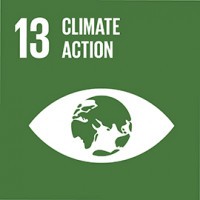
Climate action
Promoting mechanisms for raising capacity for effective climate change-related planning and management
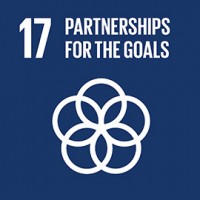
Partnership for the goals
Strengthen the means of implementation and revitalize the global partnership for sustainable development.
Research outputs
-
Davies, JC and Dunk, RM (2015). Flying along the supply chain: accounting for emissions from student air travel in the higher education sector. Carbon Management. 6(5-6), pp.233-246
-
Dunk, RM, Mörk, J, Davies, J, Davidson, J, Paling, C, Hindley, J, Leigh, S and Tinker, H (2017) Taking responsibility for carbon emissions - The evolution of a Carbon Literacy Living Lab. Environmental Scientist. 26(4)
Briefings and case studies
- COP26 Universities Network (2021) Working paper: Mainstreaming Climate Change Education in UK Higher Education Institutions
- COP26 Universities Network (2021) Case study: Carbon Literacy: Peer-to-peer training facilitates access for all staff and students
Toolkits
Team
Research team
Lead researchers
-
Dr Rachel Dunk, Carbon Literacy Consultant
-
Jane Mörk, Carbon Literacy Consultant
Partners
With partners
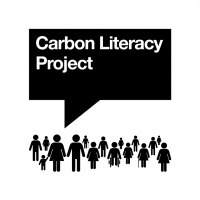
Carbon Literacy Project
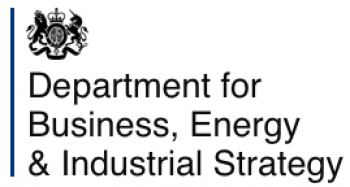
BEIS
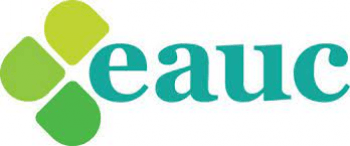
Environmental Ass. for Universities
Contact
Contact us
For general enquiries about our Zero Carbon and Sustainable Futures research group, you can contact its lead Prof Paul Hooper.
